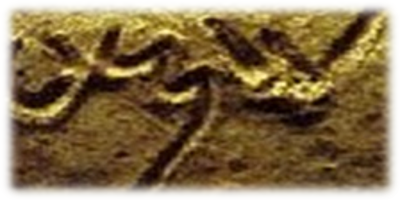


 |
  |
 An Hebraic Interpretation of "Hear O' Israel"By Jeff A. Benner
Hear  One The use of the word "one" in this verse is commonly interpreted to mean that there is only "one" God. However, from a Hebraic perspective, the Hebrew word אחד (ehhad, Strong's #259) can mean a "unit" within a unity. This verse is stating that YHWH is in unity with himself. A good example of this is the pillar of cloud by day and a pillar of fire by night. A cloud and fire are opposites—one provides coolness and shade and the other heat and light. Yet, they work together to preserve the people during the day and the night. Love Love, the Hebrew verb אהב (A.H.B, Strong's #157) is not an emotion: it is an action. The context of this word in the text indicates that we are to "love" God with our actions, not with our emotions. Heart The heart, לבב (levav, Strong's #3824) in Hebrew, is the thoughts of the mind, not an emotion as the word is generally understood in western minds. In this passage, we are informed how to "love" YHWH—by keeping all of our thoughts focused on him. Soul The Hebrew word נפש (nephesh, Strong's #5315) is literally the whole of the person. First we are told to love YHWH with our minds, now with all of our bodies.
Might The Hebrew word used here is מאד (me'od, Strong's #3966) and is a very interesting word, especially in the way that it is used in this context. This word is used throughout the Hebrew text as an adverb, intensifying a verb, and is usually translated as very, greatly, or much. This is the only time this word appears as a noun and is best translated as "muchness." This idea of muchness is expanding on the previous two ways we are to love YHWH, first with our mind, then with our body, and now with everything we have. A Re-Translation Now that we have examined each word in this passage, to uncover their original meanings in the Hebrew culture, let’s translate it with a more Hebraic flavor.
The phrase "heart, mind and soul," as it is translated in the RSV, is generally interpreted to mean that we are to love YHWH with "three" things, but the reality is that this phrase is a form of poetry that is using three synonyms to show that our love for YHWH is to be all encompassing, beginning with our thoughts, then our bodies, then everything we possess.
Notice that the ayin (ע), the last letter in the first word is written oversized, as is the dalet (ד), the last letter in the last word. When these two letters are placed together, they form the word עד (eyd, Strong's #5707) meaning "witness." In Judaism, the sh’ma (the name given to this verse as it is the first word in this verse) is Israel’s witness, their statement of faith if you will.
Jeff & Denise Benner Ancient Hebrew Research Center If you were sent this e-mail, would you like to receive our e-mails? Go to our Mail List page to learn more! |